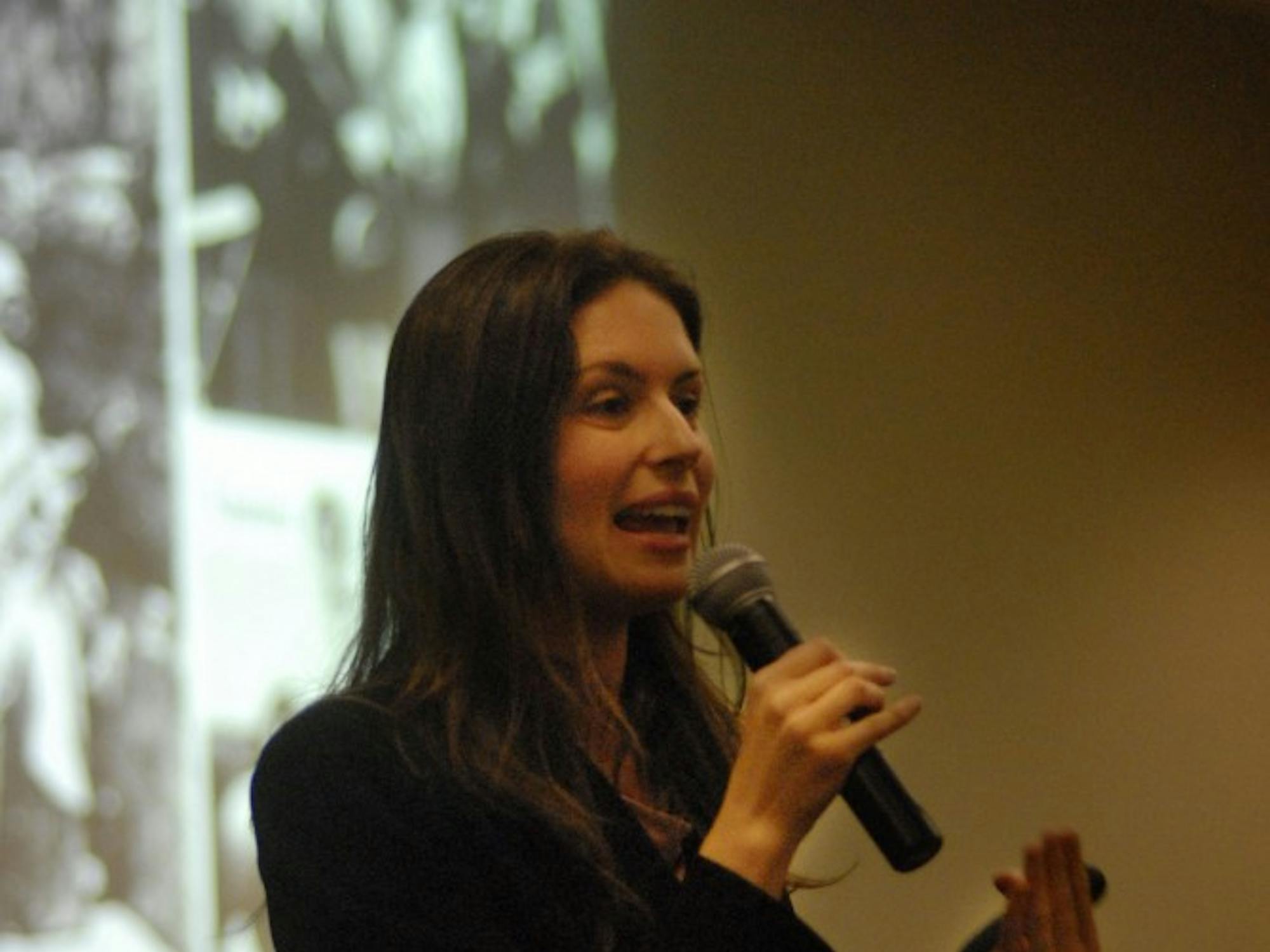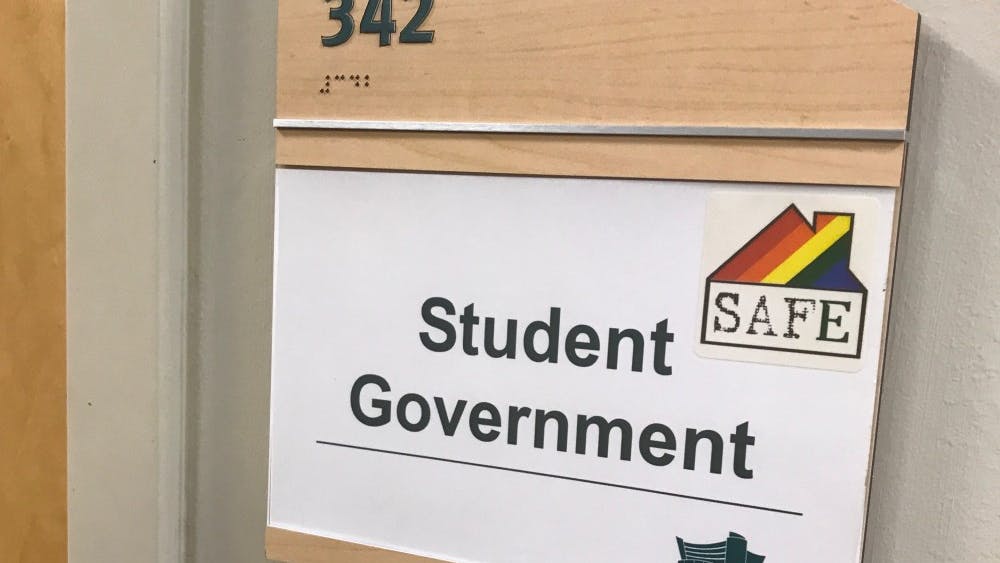There are a few prerequisites before one can be taken seriously in the realm of the Israeli/Palestinian conflict.
First, the speaker must be removed slightly from whichever side they advocate. Half-truths and total propaganda run rampant through this field of study, so any information coming directly from either camp is taken with just suspicion.
Second, they must balance this neutrality with at least some connection to the Middle East. This topic has attracted an army of amateur, hipster commentators as well as modern-day doomsayers who are all eager to have their opinions heard. But no matter how well-meaning or rich in apocalyptic symbolism, all observations ring empty without real life experience.
Anna Baltzer comes close to satisfying these criteria.
“I’m always a little bit humbled when I’m invited by Muslims, as a Jewish American, to talk about oppression,” she said addressing a crowded room on the 3rd floor of the Student Center at Eastern Michigan University.
As the author of “Witness in Palestine,” Baltzer has been making the rounds talking about the rights of the Palestinians and speaking out about the policies of the Israeli government.
But she did not start out on this side.
She opened the presentation talking about how secure she was in the story presented by her country and by her people. Backpacking through Syria and Lebannon, she came under the care of Palestinian refugees and heard an alternate history. But the original narrative was too entrenched to dissolve so easily, so she decided to go to the region.
“I went to see for myself, with my own eyes,” Baltzer said. “I realized quickly how little we hear in this country.”
The obligatory history lesson ensued. It was brief, but managed to cover most of the major developments consisting of early Zionist settlement to the 1948 war of independence and the expulsion of Palestinians on to the 1967 war and the subsequent occupation.
Wars and injustices after this were absent, but what made the lecture unique was Baltzer’s own experience.
A slideshow made this far-off problem seem local. There were photos of mourning parents and burnt out buildings, but pictures of the day-to-day inequality helped drive the point home.
One such photo showed a newly paved Israeli road right above a Palestinian-only road. Huge missing chunks of asphalt and unmanageable earthen bumps made the latter useless to a driver.
Another picture showing a Palestinian ambulance pulled to the shoulder to let an Israeli work truck made the status quo quite clear. According to Baltzer, a 30 mile drive can take from a few hours to an entire day due to the many Israeli checkpoints between villages.
The scope of oppression widened suddenly when she began to talk about the consequences of Operation Cast Lead. This conflict that took place in the winter of 2008 resulted in 926 civilians in Gaza dead, a loss of one third of Gaza’s agricultural land and one third of their schools destroyed.
But on the daily inconveniences as well as the massacres, the American press has been largely silent. To illustrate this point Baltzer projected the image of an internationally produced Newsweek magazine.
Displayed prominently on this worldwide version was a tease for an article entitled “Plight of the Palestinians.” She then showed the same issue that was to be distributed in America, with the article conspicuously missing.
“In Israel, even, you get more coverage of what’s going on than in the U.S.”
But the presentation was not held to reinforce feelings of hopelessness. Engaging the audience, Baltzer began to go over a series of organizations and activities that could help to change the situation.
Many of the people arranged within the rows of folding chairs seemed suspiciously eager to speak. Some went as far as to rise amid the congregation to give speeches about their own groups.
Among the solutions were schools that integrated Israeli and Palestinian children and a service that sent convoys of aid to Gaza alternating between land and sea routes.
The idea that illicited the greatest response from Baltzer, however, was the possibility of boycott divestment sanctions. This tactic of boycotting all goods and services of a country as well as all companies that involve themselves with that country is what eventually overturned the apartheid state in South Africa.
“Martin Luther King said that the powerful will never stop oppression on their own, that justice must be demanded by the oppressed. … Israel has to be pressured by the world and the Palestinians themselves,” Baltzer said.










